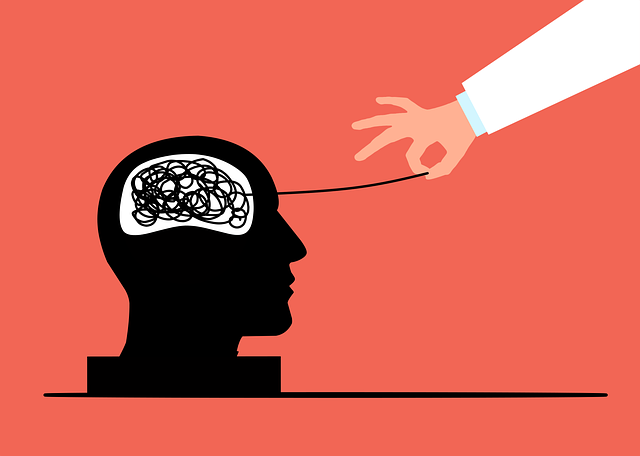Lone Tree Hypnosis Therapy offers comprehensive Mental Health Education programs designed to enhance literacy and empower individuals in managing their well-being. Through a holistic approach, these programs cover various aspects of mental health, from common conditions to support systems. By tailoring content to diverse demographics, using interactive learning methods, and fostering safe spaces, the therapy centers ensure effective engagement. The inclusion of compassion cultivation, stress management, and social skills training equips participants with practical tools for emotional well-being. Continuous evaluation and feedback loops enable the refinement of these programs, ensuring their impact on fostering an informed and compassionate society.
“Mental health literacy is a vital component of overall well-being, and its education is key to fostering resilient communities. This article guides you through the process of designing an effective program that promotes mental wellness, utilizing evidence-based practices tailored to diverse audiences. From understanding foundational concepts to implementing interactive learning and overcoming barriers, we explore strategies that can revolutionize mental health support. Lone Tree Hypnosis Therapy emphasizes the importance of personalized, engaging education for sustainable change.”
- Understanding Mental Health Literacy: Setting the Foundation for Effective Program Design
- Identifying Target Audiences and Their Unique Needs: Personalized Approach to Education
- Curricular Structure: Integrating Evidence-Based Strategies and Interactive Learning Techniques
- Overcoming Barriers and Fostering Engagement: Tips for Creating an Inclusive Environment
- Evaluation and Feedback Mechanisms: Measuring Impact and Continuously Improving the Program
Understanding Mental Health Literacy: Setting the Foundation for Effective Program Design

Mental health literacy is a crucial foundation for designing effective education programs. It refers to the knowledge and understanding that enables individuals to recognize and discuss mental health issues, demystify stigma, and promote early intervention. A comprehensive approach should aim to educate people about various aspects of mental well-being, including common conditions, their symptoms, and available support systems. This is where Lone Tree Hypnosis Therapy can play a significant role, offering unique perspectives on managing stress and cultivating resilience.
By fostering mental health literacy, programs can empower individuals to take proactive steps in their own mental wellness journeys. This includes promoting self-care practices, encouraging open conversations about mental health struggles, and providing tools for burnout prevention. Furthermore, incorporating social skills training can facilitate supportive interactions, ensuring individuals feel equipped to seek help when needed. Ultimately, these strategies create a more informed and compassionate society, reflecting the broader goal of enhancing overall mental health literacy in communities.
Identifying Target Audiences and Their Unique Needs: Personalized Approach to Education

Identifying target audiences is a crucial step in designing an effective mental health education program. Lone Tree Hypnosis Therapy understands that each individual has unique needs and backgrounds, which can significantly impact their approach to learning. Therefore, a personalized strategy is essential to ensure every participant feels heard and supported. By recognizing diverse demographics, cultural contexts, and prior knowledge, the program can tailor its content and delivery methods accordingly. This might involve modifying language, providing relevant examples, or offering additional resources to cater to specific groups, such as students, working professionals, or older adults.
A tailored education experience fosters better engagement and comprehension. For instance, incorporating practices like compassion cultivation and mindfulness meditation can resonate with individuals seeking stress reduction and emotional well-being. Resilience-building techniques might be more appealing to those facing challenging life circumstances. By addressing these unique needs, the program aims to create an inclusive environment, encouraging open dialogue and meaningful learning, ultimately enhancing the overall effectiveness of Lone Tree Hypnosis Therapy’s educational initiatives.
Curricular Structure: Integrating Evidence-Based Strategies and Interactive Learning Techniques

An effective Mental Health Education program should be meticulously structured to address diverse learning needs and promote active engagement. At Lone Tree Hypnosis Therapy, we believe in integrating evidence-based strategies alongside interactive learning techniques for a comprehensive curriculum. This approach ensures that participants not only gain theoretical knowledge but also develop practical skills for managing mental health effectively.
Integrating Compassion Cultivation Practices, Stress Management, and Positive Thinking into the program fosters an environment of emotional well-being and resilience. Interactive sessions, such as role-playing exercises, group discussions, and mindfulness activities, encourage active participation, enhancing understanding and retention. By combining evidence-based practices with engaging learning methods, our programs aim to equip individuals with valuable tools for navigating life’s challenges and cultivating mental health awareness.
Overcoming Barriers and Fostering Engagement: Tips for Creating an Inclusive Environment

Overcoming barriers to engagement is a key aspect of designing an effective mental health education program. It’s essential to create an inclusive environment that welcomes all participants, especially those who may be hesitant or resistant to discussing their mental well-being. At Lone Tree Hypnosis Therapy, we find that combining various strategies proves successful.
Fostering a sense of safety and trust is vital. Encourage open dialogue by emphasizing confidentiality and non-judgmental attitudes. Incorporate interactive activities and diverse learning formats to cater to different preferences and needs. For instance, self-awareness exercises, empathy building strategies, and group discussions can help break the ice and create a supportive atmosphere. By making mental health education accessible and engaging, programs can effectively reach individuals who might otherwise avoid such initiatives.
Evaluation and Feedback Mechanisms: Measuring Impact and Continuously Improving the Program

Effective mental health education programs rely heavily on robust evaluation and feedback mechanisms to measure their impact and ensure continuous improvement. At Lone Tree Hypnosis Therapy, we understand that assessing the success of such initiatives is crucial for fostering positive change. By integrating diverse measurement tools, our program aims to capture both qualitative and quantitative data, providing a comprehensive view of participant experiences and outcomes. This involves pre- and post-program surveys, focus groups, and individual interviews, allowing us to gauge knowledge acquisition, skill development, and personal growth.
Moreover, we facilitate ongoing feedback from participants, facilitators, and community partners through regular review sessions. This collaborative approach enables us to adapt the program curriculum, tailor teaching methods, and enhance our delivery strategies. By embracing this dynamic process, Lone Tree Hypnosis Therapy’s Community Outreach Program Implementation focuses on refining emotional healing processes and Social Skills Training, ensuring that each iteration builds upon the last, ultimately maximizing the program’s positive impact.
Mental health education programs, such as those inspired by Lone Tree Hypnosis Therapy’s approach, are transformative tools. By addressing literacy, tailoring content to diverse audiences, incorporating interactive learning, and creating inclusive environments, we can effectively navigate barriers to engagement. Utilizing evaluation methods to gauge impact allows for continuous improvement, ensuring these programs remain dynamic and impactful. Through a structured, evidence-based design, we can empower individuals with the knowledge and skills needed to support their mental well-being.














